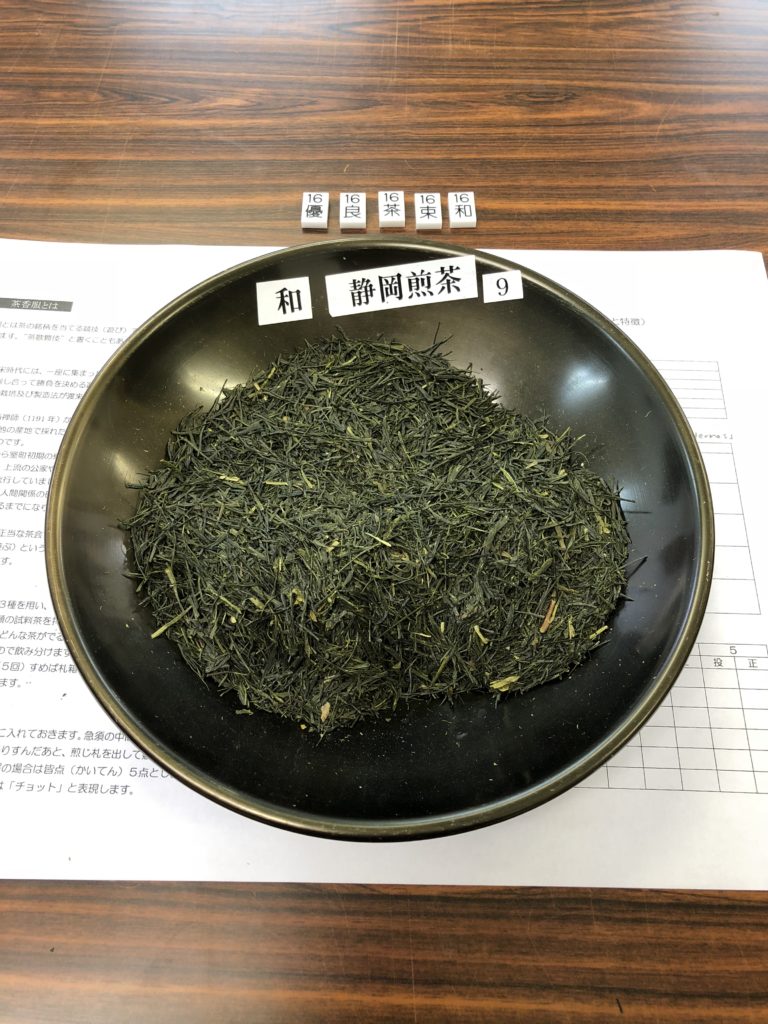
Over the weekend, I was able to take part in a Chakabuki here in Wazuka! A chakabuki, in short, is a blind tea tasting game that is played in Japan. I’ve never been to one before, so I thought it would be fun to bring everyone along!
Chakabuki was originally played by the aristocrats, but it is now used by professionals and tea lovers to taste various teas! Five similar teas are compared to one another, such as sencha and gyokuro.
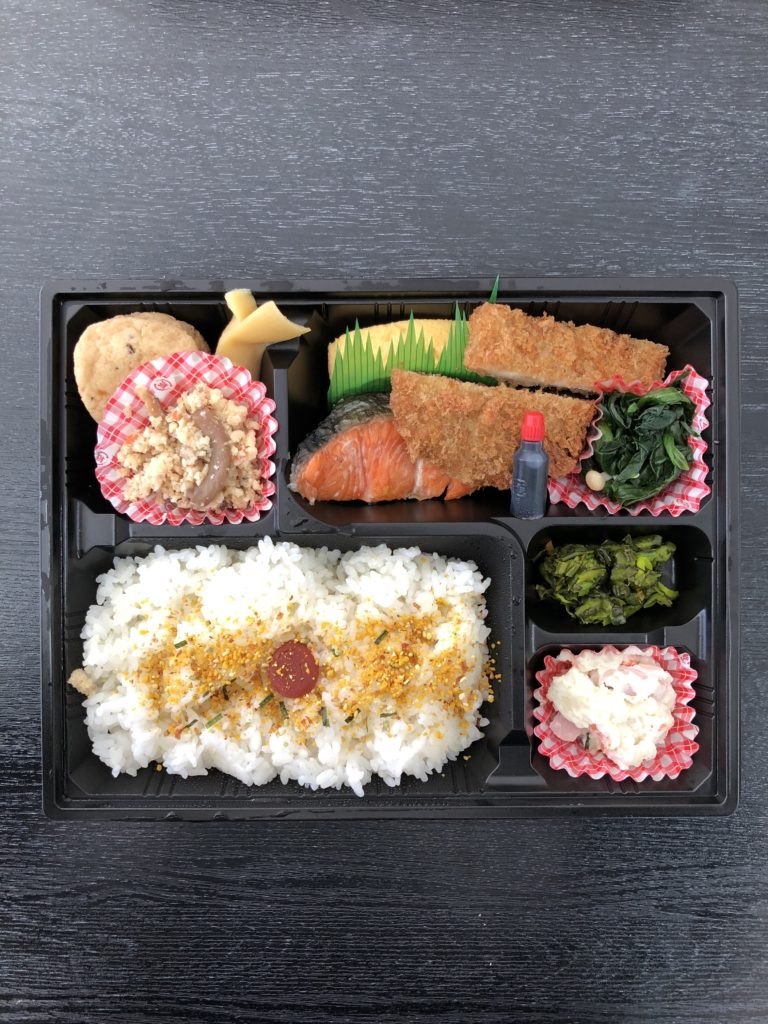
The cost of the event was 1,600 yen, which included a set meal. To me, that was a good deal, so I signed up right away! The lunch was great – there was rice with egg seasoning (furikake), tofu, steamed vegetables, etc. There was also a kabuse sencha green tea cake that was soft and fluffy like a cloud!
When you sit down during the actual event, each participant is given a sheet of paper which provides space to write down information about the teas, such as taste, colour, aroma, etc, as well as guesses. We only did three rounds, but it can go up to five.
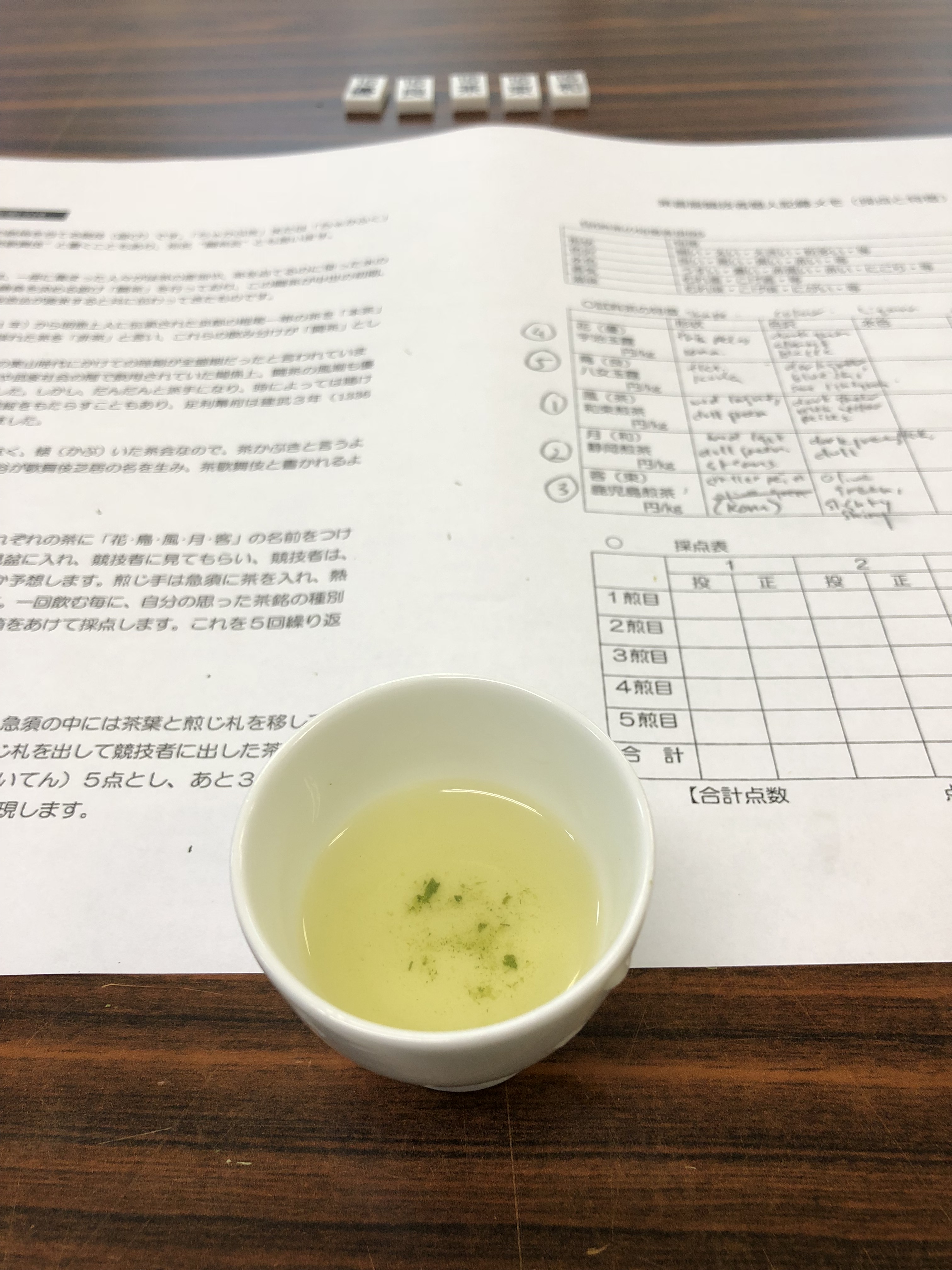
The dry leaves were shown to each participant and we were encouraged to smell and touch the leaves and then write down notes. The teas normally come from different regions depending on the location of the chakabuki.
Therefore, in Wazuka, it would be teas from Wazuka and Uji, Yame, Shizuoka and Kagoshima. There are normally two gyokuro and three senchas. This time around, the event featured only Wazuka teas, which made the game much more challenging, as different areas produce different flavours or use different farming and processing techniques.
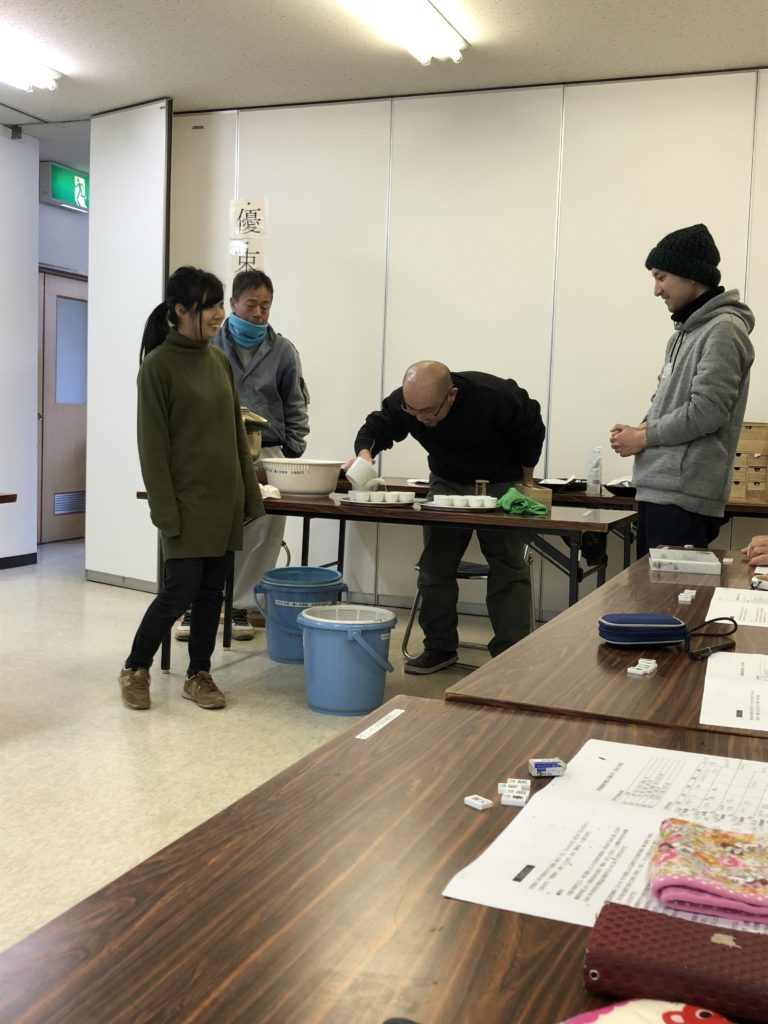
Each tea is brewed using the same steeping parameters to keep consistent and over-brewed to enhance the aroma. At this event, each tea was brewed for 90 seconds. We were told to not focus on the taste and colour of the liquor, but on the actual aroma, because that would be the one constant.
Guesses are recorded in the form of tiles. Each tile has the participant’s number and the kanji that represents the tea. The teas are brewed in a random order and a cup of liquor is given to the participants to smell and taste. I was number 16.
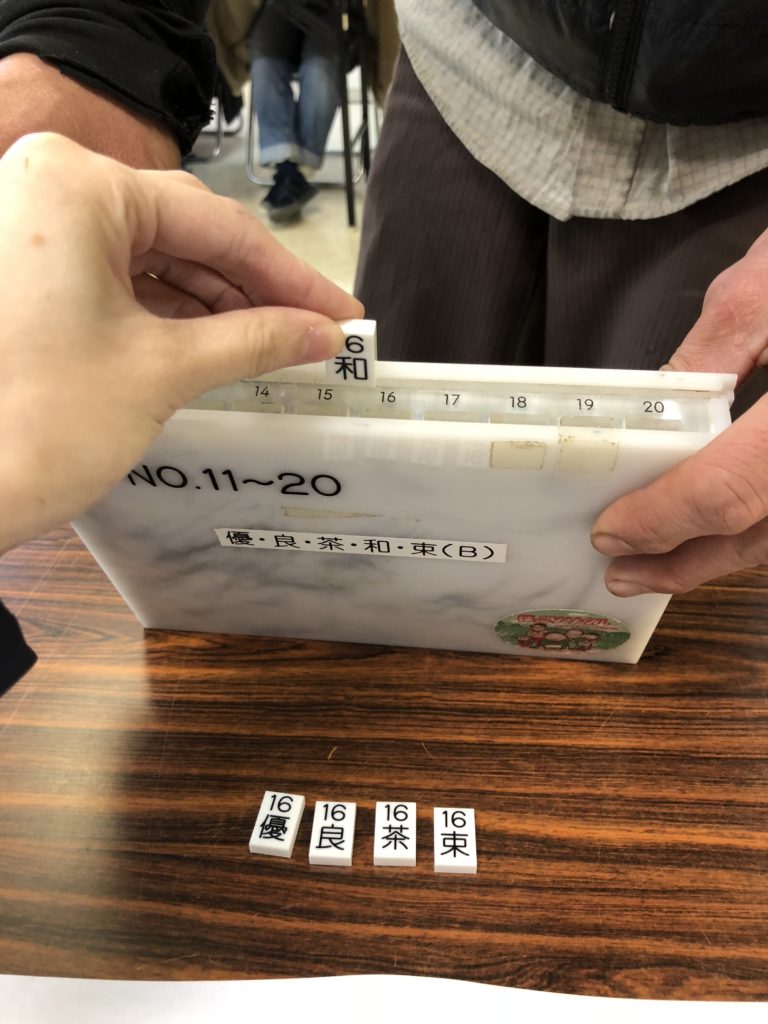
The votes are then put into a box and participants are not allowed to change their vote once it has been put in. When it is the fourth round, the fifth tea is also voted on at the same time because all the answers will have then been locked in. After each round, the answers are provided so participants can learn and adjust future answers.
At the end of the event, I netted 5 points out of 15; 1, 3, and back to 1. That landed me 5th place! I did better than I expected. After all, I thought I wouldn’t even get one because I am pretty weak with Japanese teas. I won 3 bags of kukicha!
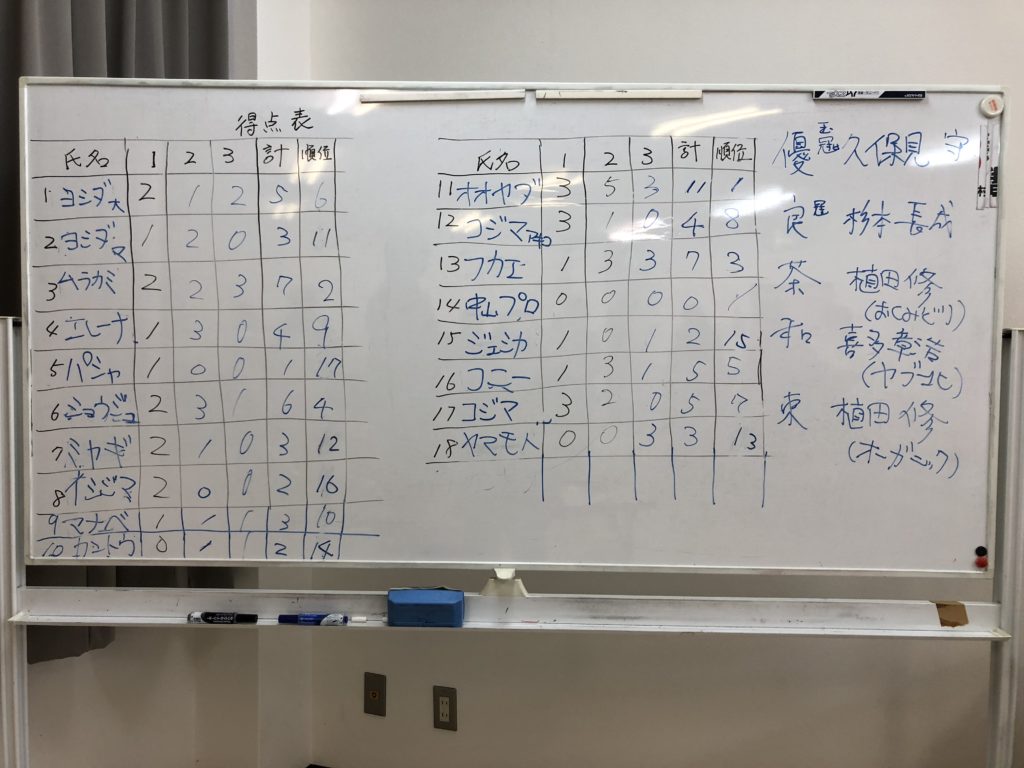
I would definitely recommend trying a Chakabuki, or even a blind tasting in general. It helps you learn to focus on what to pay attention to and to hone in on the little details and characteristics of a tea.
Would you try a blind tea tasting event?

6 comments
So glad you did this! I would too if given the opportunity and CONGRATS on fifth place. Wooah!!!!
Now to wait until next week for another tea trip post from you to live vicariously through 😃
Wow, this sounds like a ton of fun! I love these kinds of tastings. Don’t sell yourself short, your results speak for themselves especially with such a specific range. 😆 What was your secret to getting the teas right?
It was luck, to be honest. I don’t speak any Japanese, so I was pretty lost what was happening. The one tip about the smell staying constant was key. I mucked up the last round, since I think I could have done better. Next time!
[…] I had time off, I had the opportunity to participate in chakabuki events, a nodate tea ceremony, and to visit tea shops and attend a tea ceremony in Kyoto. During my […]
[…] on how to look at the dry and wet leaf, and then guessing based on what we tasted. Similar to the chakabuki events I tried in […]
[…] not overly familiar with tea from Yame and have only had a handful. Also, most of them were during a Chakabuki Event so the teas were over […]